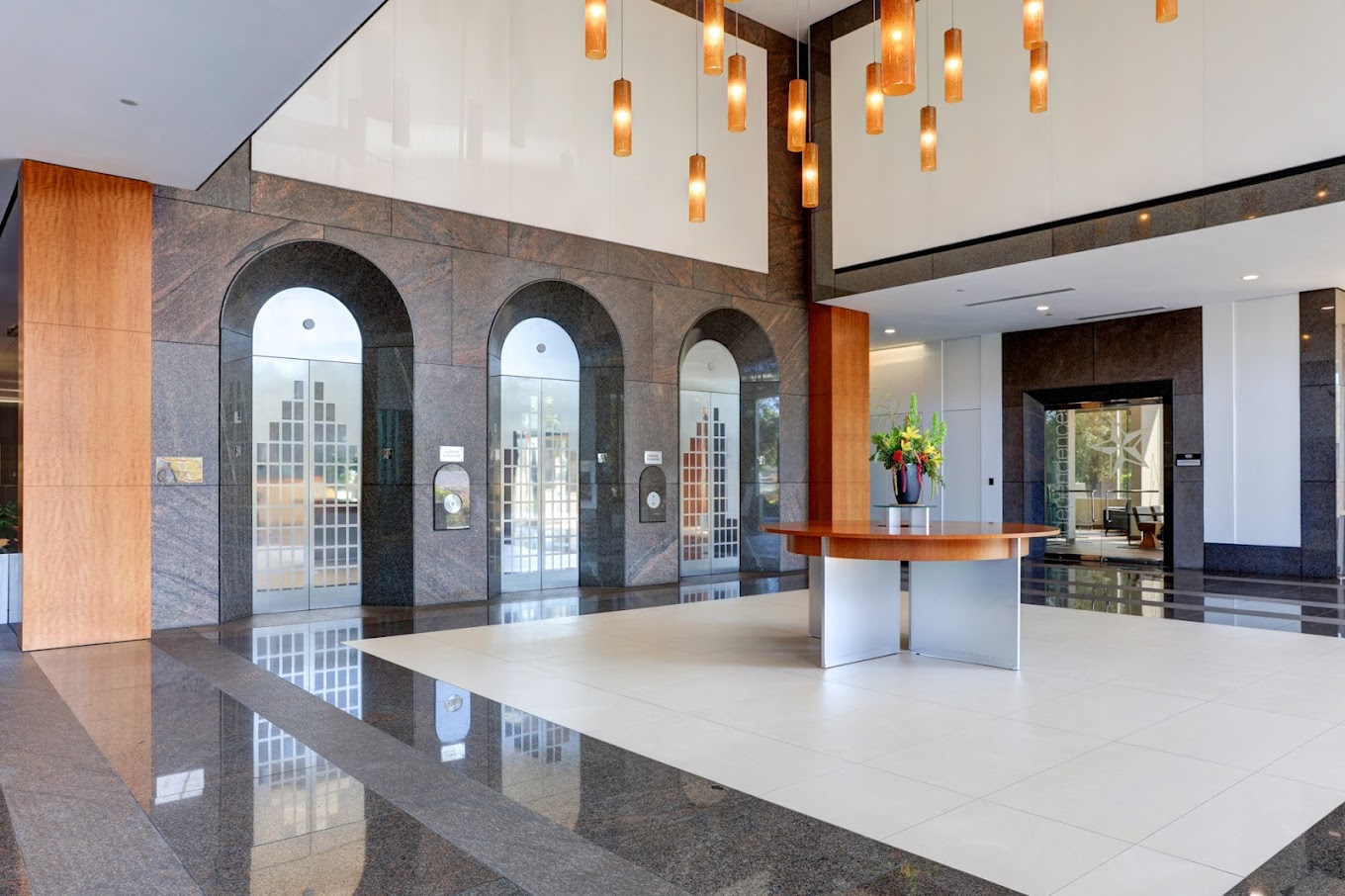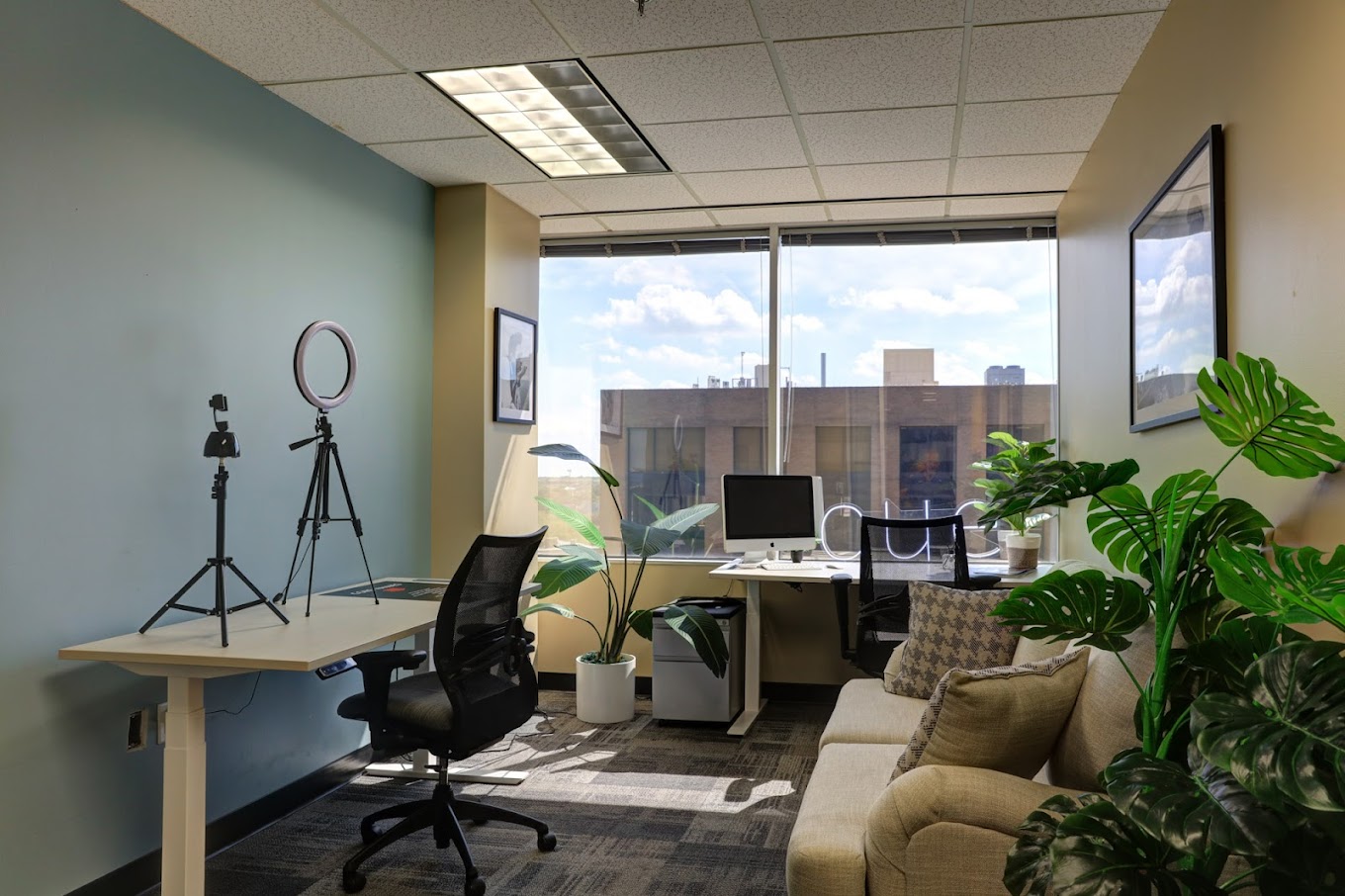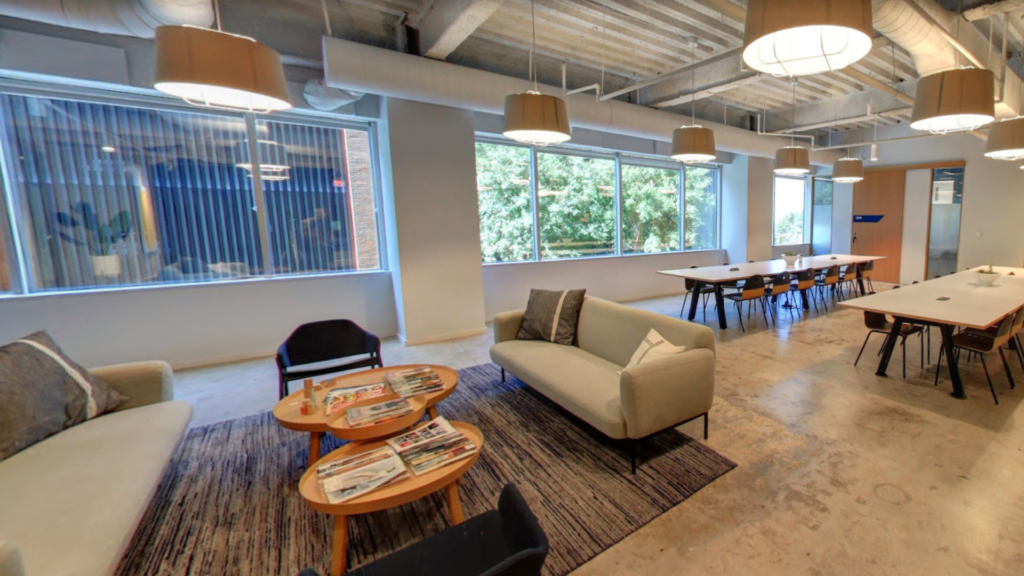
Finding the right office space is a crucial decision for any business owner. In a city like Dallas, one of the fastest-growing business hubs in the United States, the demand for flexible office space is increasing rapidly. Whether you’re a startup, a growing business, or an established company looking for scalable solutions, the right office environment can directly impact your productivity, employee satisfaction, and overall business performance.
This guide covers the key factors business owners need to consider when choosing flexible office space in Dallas. We’ll explore the types of available spaces, the benefits they offer, and how to avoid common pitfalls, ensuring you make a decision that supports both your immediate needs and long-term growth.
Table of Contents
Why Dallas is a Prime Market for Flexible Office Space
Dallas has become a preferred destination for businesses due to its strong economy, strategic location, and business-friendly policies. For business owners, this translates into a wide range of office space options, competitive lease terms, and a supportive environment for growth.
Key Reasons Businesses Are Choosing Dallas
- Business-Friendly Tax Structure: Texas has no state income tax, lowering the overall cost of doing business.
- Diverse Economy: Industries such as technology, healthcare, finance, and real estate contribute to a stable business environment.
- Central Location: Dallas’s central location within the U.S. makes it easy to reach major domestic and international markets.
- Skilled Workforce: The city attracts top talent, giving businesses access to a diverse and highly qualified labor pool.
Dallas’s strong economic foundation creates an environment where flexible office spaces thrive. Understanding the types of office spaces available will help you determine which solution fits your business model and growth trajectory.
Types of Flexible Office Spaces in Dallas
Flexible office spaces are designed to accommodate the changing needs of modern businesses. Understanding the different types of spaces available in Dallas will help you select the one that aligns with your operational requirements and budget.
1. Coworking Spaces
Coworking spaces are shared work environments where multiple businesses, freelancers, and remote teams work side by side. These spaces are structured to provide a sense of community while minimizing operational costs.
Who It’s Best For:
Startups, freelancers, and remote teams benefit the most from coworking spaces due to their cost-effective nature and flexibility. If you’re building a new business and need to keep overhead costs low, coworking spaces provide an affordable way to access professional work environments without long-term commitments.
Advantages:
- Lower Costs: You only pay for the space you use, and operational expenses (like utilities and cleaning) are shared among members.
- Networking and Collaboration: The shared environment encourages business networking and partnerships with other professionals.
- Convenience: Most coworking spaces provide high-speed internet, meeting rooms, shared kitchens, and common areas.
Coworking spaces are particularly popular in creative and tech-focused areas like Deep Ellum and Uptown, where the business culture encourages innovation and informal networking.
2. Serviced Offices
Serviced offices offer a more structured and private working environment compared to coworking spaces. These offices are fully furnished and ready to use, with professional reception services, maintenance, and IT support included in the lease.
Why Businesses Choose Serviced Offices:
Serviced offices are ideal for businesses that need privacy and professional infrastructure but want to avoid the high costs and long-term commitments of traditional office leases.
Companies that host frequent client meetings or require confidentiality, like consulting firms, financial services, and legal offices, find serviced offices especially useful.
Key Features:
- Dedicated Office Space: Unlike coworking spaces, you have a private office for your team.
- Professional Services: Reception services, mail handling, and IT support are included in the lease.
- Short-Term Lease Options: Flexibility to sign month-to-month or short-term contracts.
Serviced offices are often located in high-end business districts such as Downtown Dallas and Las Colinas, where proximity to corporate hubs and transport links is beneficial.
3. Virtual Offices
Virtual offices provide businesses with a professional business address, phone answering services, and mail handling without the need for a physical office.
How Virtual Offices Work:
With a virtual office, businesses can list a prestigious business address on their website, marketing materials, and legal documents without renting physical space. Calls are answered by professional receptionists, and mail is handled on your behalf. This setup is particularly useful for remote businesses and solo entrepreneurs who need to establish credibility without the overhead of a physical location.
Benefits:
- Cost Savings: You avoid the expenses of renting physical office space while maintaining a professional image.
- On-Demand Access: Some virtual offices offer access to meeting rooms and coworking spaces when needed.
- Brand Credibility: Having a well-known business address enhances your company’s professional reputation.
Virtual offices are ideal for remote businesses, startups testing new markets, and small companies that need a professional presence without the cost of a physical office.
4. Hybrid Offices
Hybrid offices combine the benefits of coworking spaces and serviced offices, offering both shared work areas and private office suites within the same facility.
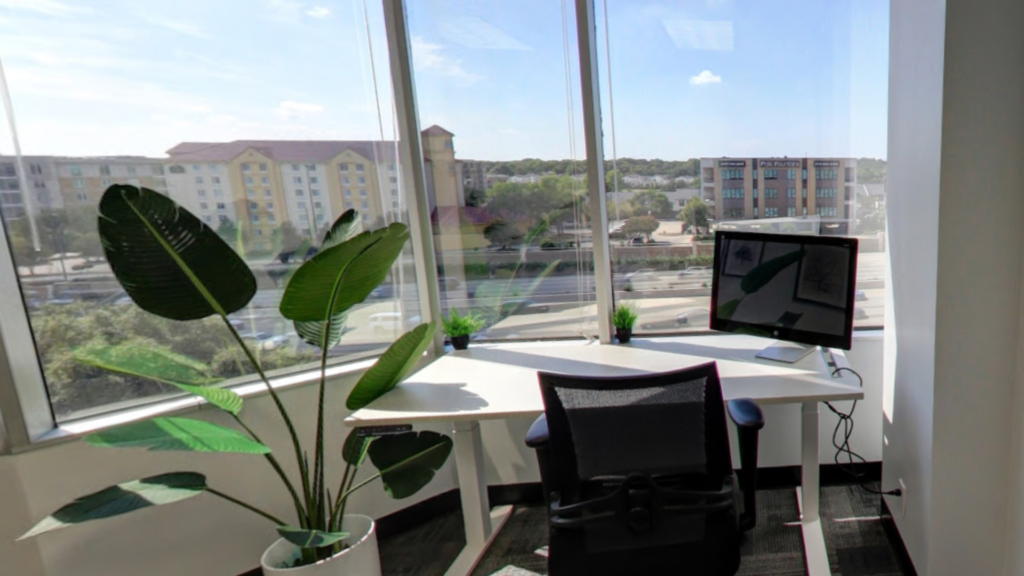
Why Hybrid Offices Are Growing in Popularity:
As more companies adopt flexible work models, hybrid offices have become an attractive solution. They allow businesses to maintain a professional environment while accommodating employees who work remotely or on a rotating schedule. Hybrid offices provide the flexibility to use shared spaces when collaboration is needed and private offices when confidentiality is required.
What Makes Hybrid Offices Unique:
- Customizable Layouts: Businesses can combine open workstations with private meeting rooms and offices.
- Scalable: Hybrid offices make it easy to increase or reduce the amount of space you lease based on business needs.
- Access to Amenities: Like coworking spaces, hybrid offices often include shared lounges, kitchens, and high-speed internet.
Hybrid offices work well for businesses with hybrid work models, such as tech firms, creative agencies, and companies with remote and in-office teams.
Key Factors to Consider When Choosing Flexible Office Space in Dallas
Selecting the right office space requires more than just comparing costs. Evaluating the following factors will help you secure a space that supports your business goals.
1. Location and Accessibility
Location influences both employee satisfaction and client convenience. A well-positioned office makes commuting easier and enhances your company’s visibility.
Proximity to Major Business Districts:
- Downtown Dallas – Ideal for financial and legal firms.
- Uptown – Known for modern office spaces and high-end amenities.
- Deep Ellum – Popular with tech startups and creative companies.
- Las Colinas – Close to DFW Airport, ideal for international businesses.
Transportation Access:
Transportation access is a key factor when choosing an office space. The availability of parking, proximity to public transportation, and ease of commuting during peak hours all contribute to employee satisfaction and operational efficiency. A well-connected location not only makes it easier for employees to get to work but also ensures that clients can visit without difficulty.
A central and accessible location can increase employee retention and make client interactions more efficient, especially in a city like Dallas, where traffic patterns and parking availability can vary significantly by neighborhood.
2. Cost and Lease Flexibility
Understanding the financial structure of your lease is critical to managing long-term costs.
- Lease Terms: Look for short-term or month-to-month leases to maintain flexibility.
- Hidden Costs: Confirm whether utility fees, parking charges, and maintenance costs are included in the contract.
- Scalability: Ensure that the lease terms allow you to expand or reduce your office footprint as needed.
Choosing an office space with flexible lease terms will give you room to adjust as your business evolves.
3. Amenities and Services
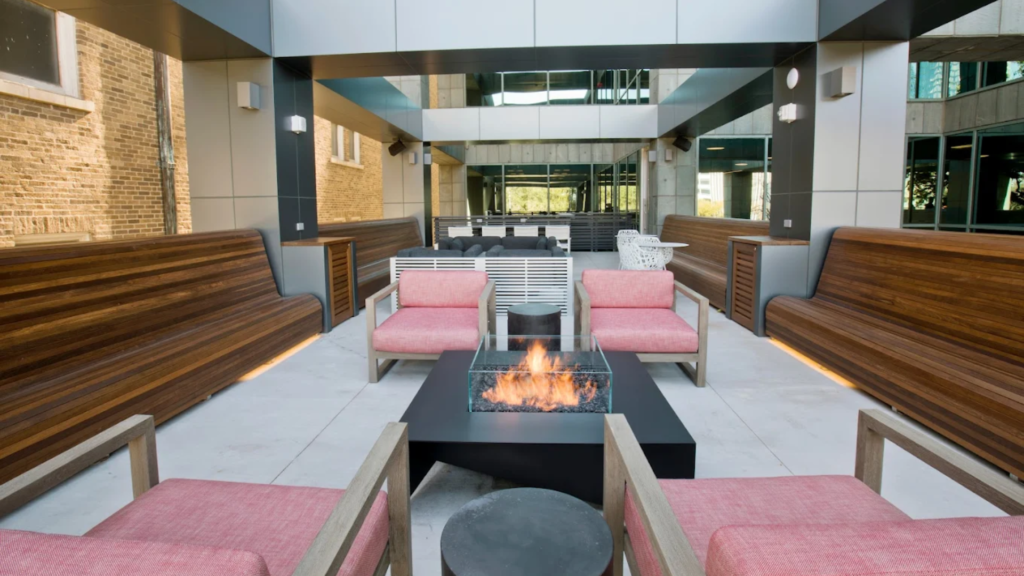
The right amenities can enhance employee productivity and overall workplace satisfaction.
- High-speed internet and IT support
- Meeting and conference rooms
- On-site security and 24/7 access
- Communal areas such as kitchens and lounges
- Mail handling and phone answering services
A well-equipped office environment can reduce operational stress and improve employee morale.
4. Company Culture and Professional Image
Your office space should reflect your company’s culture and industry position.
- Startups and creative firms may benefit from open, collaborative spaces.
- Professional service firms often require private offices and client-friendly conference rooms.
- Hybrid offices offer the flexibility to accommodate various working styles.
Choosing an office space that aligns with your company’s brand helps reinforce your business identity to clients and employees alike.
5. Growth and Scalability
Your business needs today may differ from your future requirements. Ensure that your chosen office space allows for seamless scaling.
- Look for office providers that offer easy options to expand or downsize.
- Flexible office spaces that support hybrid work models provide additional scalability.
- Some coworking spaces offer temporary access to larger meeting rooms or private suites.
A scalable office solution will allow you to grow without disrupting your operations.
Common Pitfalls to Avoid
Avoiding common mistakes can prevent costly disruptions and ensure long-term satisfaction with your office space.
- Ignoring Lease Terms: Always review renewal clauses and hidden fees.
- Underestimating Future Growth: Select a space that allows for easy scaling.
- Choosing Based on Price Alone: Lower-cost spaces may lack essential services and amenities.
- Overlooking Accessibility: Difficult commutes and poor transportation options can affect employee retention.
Finding the Right Flexible Office Space in Dallas
Finding the right flexible office space in Dallas requires a strategic approach. By understanding the types of available spaces, evaluating location and cost, and considering long-term growth potential, you can secure an office environment that supports your business goals. The Dallas market offers a wide range of flexible office solutions, allowing business owners to create a productive and scalable work environment.
FAQs on Office Space in Dallas
1. What is the difference between coworking spaces and serviced offices in Dallas?
Coworking spaces are shared work environments where businesses, freelancers, and remote teams work side by side, offering flexibility and networking opportunities. Serviced offices, on the other hand, provide private office spaces with professional services like reception, IT support, and mail handling, making them ideal for businesses that require more privacy and structure.
2. How can flexible office space benefit my business in Dallas?
Flexible office spaces in Dallas offer businesses the ability to scale up or down as needed without the burden of long-term leases. They provide cost savings through shared amenities, improve networking opportunities, and enhance employee productivity with modern work environments and high-speed internet access.
3. What are the best neighborhoods to rent flexible office space in Dallas ?
Popular neighborhoods for flexible office space in Dallas include Downtown Dallas for financial and legal firms, Uptown for modern office spaces and creative businesses, Deep Ellum for tech startups and creative agencies, and Las Colinas for corporate offices and businesses that require proximity to DFW Airport.

